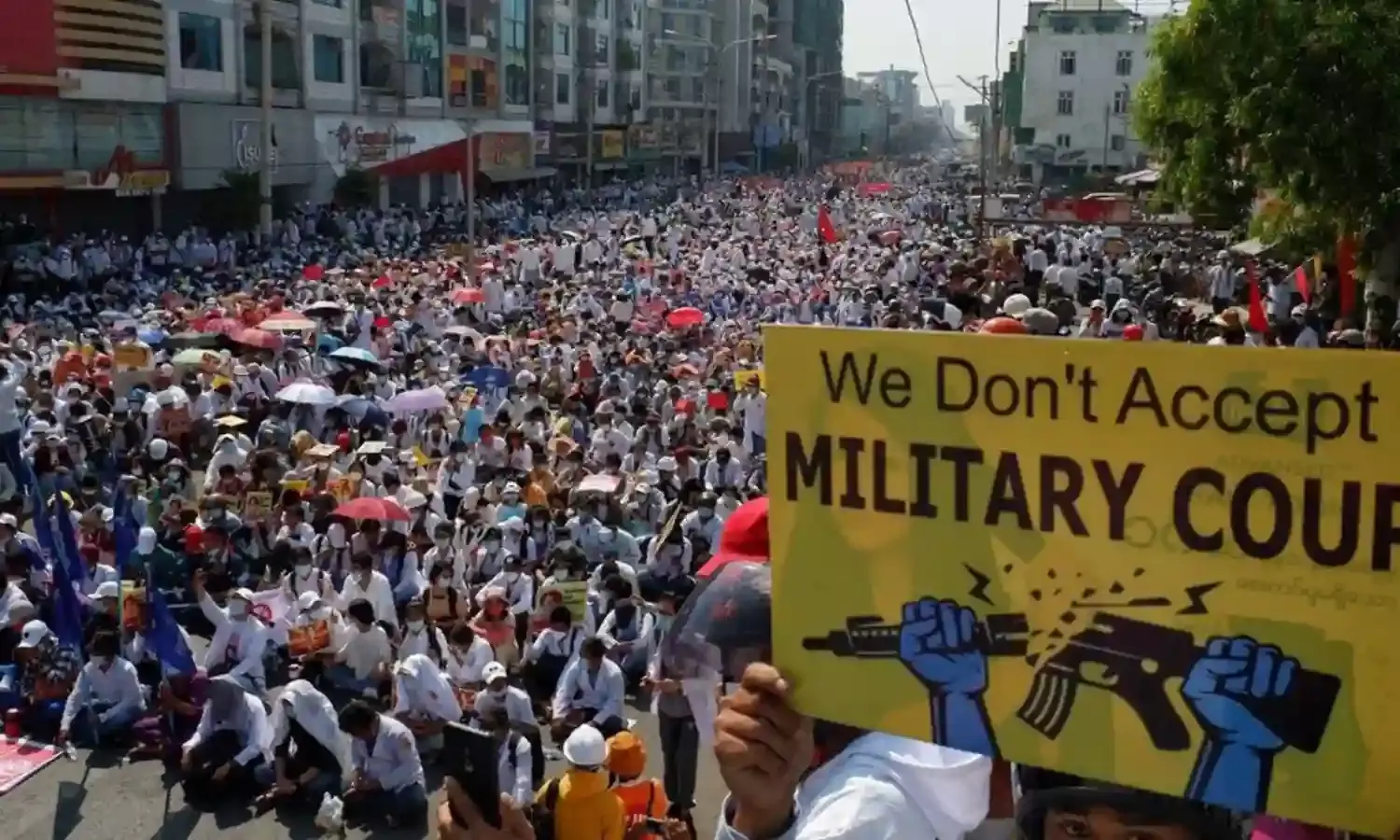The Fight For a New Myanmar
Peoples power

Every day since the military coup of Feb. 1, the people have been taking to the streets in protest in all parts of Myanmar. Over 400 people have been killed by police and soldiers firing indiscriminately on crowds of protestors, or murdered randomly in dragnets carried out by day or under cover of darkness.
But instead of diminishing, the protests have escalated, drawing people from all walks of life—workers and peasants, students and professionals, parents and children. Supporting their children’s fight for a new Myanmar, parents have taken to scrawling the names, cellphone numbers, and blood types of their children on their arms and clothes for identification and assistance should they be killed or wounded.
Beyond going out to the streets in protest, the people of Myanmar have brought the country to a halt. The guns of the military have now been answered with the people’s weapon: Their power to paralyze the economy.
The illegitimate military regime is isolated domestically. It is also isolated internationally. World opinion is reflected in United Nations Secretary General António Guterres’ stern call on the putschists to “Stop the repression immediately. Release the prisoners. End the violence. Respect human rights, and the will of the people expressed in recent elections. Coups have no place in our modern world.”
The Myanmar coup has placed the Association of Southeast Asian Nations (Asean) on the spot. In a region where the lives of 650 million people are indissolubly linked politically and economically, the old principle of “non-intervention in the internal affairs” of other member countries that has long governed inter-state relations is anachronistic. The governments of Indonesia, Malaysia, and Singapore have recognized this in their historic call for a regional summit on recent developments in Myanmar.
Manila has not yet joined this call, which is really disappointing and ironic given that the democratic political system we have owes its existence to a people’s uprising in 1986.
Apparently, the Duterte administration is still hesitant to fully break with its previous policy of refraining from any criticism of the Myanmar government, even of the latter’s inhuman policy of genocide toward the Rohingya people, that was put in place by Rep. Alan Peter Cayetano when he served as foreign secretary.
Cayetano issued a controversial statement in September 2017, when the Philippines was Asean chair, that condemned attacks on the Myanmar military but omitted any reference to the military’s repression and forced displacement of the Rohingya, provoking protests from the Malaysian and Indonesian governments.
The shameful silence of Cayetano, an amateur political appointee in foreign affairs, was apparently in exchange for Myanmar’s silence in the face of the Duterte administration’s record of thousands of extrajudicial executions that were taking place at the time that was part and parcel of its war on drugs.
Cayetano is gone, and current Foreign Secretary Teddyboy Locsin appeared to depart from Cayetano’s ignominious policy in the days after the coup, calling for a “return to the status quo,” a move that was applauded by pro-democracy forces in Myanmar. He can now go further by fully supporting the call for a regional summit, as he is being urged by his counterparts in Singapore, Malaysia, and Indonesia.
Myanmar is at a crossroads. The February 1 coup was not a show of strength. It was an act of desperation. A decade of liberalization had given the people a taste of what full freedom would be after decades of stifling military rule, and they will not give up their dream. The Philippine government likewise is at a crossroads in its diplomacy toward Myanmar. It can either be part of the problem or part of the solution. Let it be the latter.
Former congressman Walden Bello, a former Congressman from the Philippines, is the author of “Paradigm Trap: The Development Establishment’s Embrace of Myanmar and How to Break Loose” (2018). He is a member of the board of the Asean Parliamentarians for Human Rights.
Cover Photograph: Getty Images. Also Published in The Inquirer



